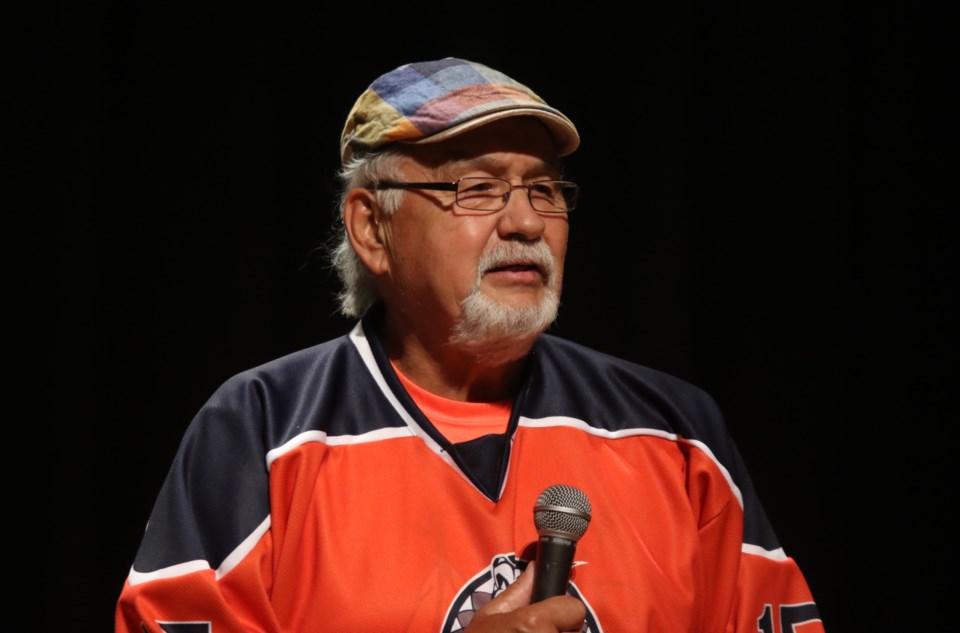DRYDEN, Ont. -- Growing up in Riverton, Man., Reggie Leach said he didn't witness much racism.
It wasn't until he landed in Flin Flon, to play junior hockey for the Bombers, that the insults began to fly from the stands.
His coach told him he was best to ignore it, that it must mean he was doing something right on the ice. Better yet, score a few goals and it would probably go away.
More than 50 years later, Leach, an Indigenous pioneer who scored 381 goals in 934 NHL games, winning a Stanley Cup in 1975 with the Philadelphia Flyers, says ignoring the problem did not make it go away, it just bubbled under the surface for decades.
Leach who on Saturday was the guest of honour, alongside his NHL-playing son, Jamie, at the Truth and Reconciliation Game between the Thunder Bay North Stars and host Dryden Ice Dogs, said it was a far different attitude toward race during Leach's heyday with the Broad Street Bullies.
“We just let it go by. Right now, a lot of this racism that's involved with the National Hockey League, I think if players like myself back in the '70s and '80s, we should have spoken up sooner to the league and maybe they wouldn't have been so mad in the National Hockey League with the racism that's going on.”
The 71-year-old said he's done staying silent.
It's time to speak up, Leach said, pointing to the discovery this past summer of hundreds of bodies in unmarked graves at residential school sites across Canada.
“I think that we have to educate everybody about what's going on, making everybody responsible for whatever happened. I think we have to get the literature out there, let the people know what happened and go from there,” Leach said.
“Working together as one, not individually because that's not going to work. What the Ice Dogs are doing here, I think it's a great thing because not too many other clubs are doing it. But I think this will catch on with other people and other teams. You're not going to see change overnight, but you're going to get the information out, what happened and the truth.”
Jamie Leach, who played 81 games in the NHL, winning a pair of Stanley Cups with Pittsburgh in the early '90s, said living in Philadelphia, he didn't face the same kind of racism as his father. But later in life he decided to learn more about his Indigenous culture.
Being asked to take part in the Truth and Reconciliation game was pretty special, the 52-year-old said.
“We want to get some education out there. We want people to know what's happening. Let's start the talk, let's start the education, let's start the curriculum and let's just keep it going. (Dad's) really passionate about it and I am myself. And personally I want to become more of aware of what's happening to make sure we don't do it again.”
Ice Dogs captain Cameron Ware said the residential school site discoveries were an eye opener for all Canadians.
The Bright's Grove, Ont. native, who has three goals in three games this season, said the Truth and Reconciliation game is a huge initiative for the community, which includes a large Indigenous population, many of whom are still affected by the legacy of the country's residential schools.
“It's obviously something that's been taken a little bit lightly the last few years and there have been a couple of incidents that just can't be (tolerated). As one of the first Junior A hockey teams to have a game like this is huge,” Ware said. “I'm honoured to be a part of it, but it's more than just us. It's for the people of First Nations communities and as long as this keeps going, as it should, I'm happy to be a part of it.”
